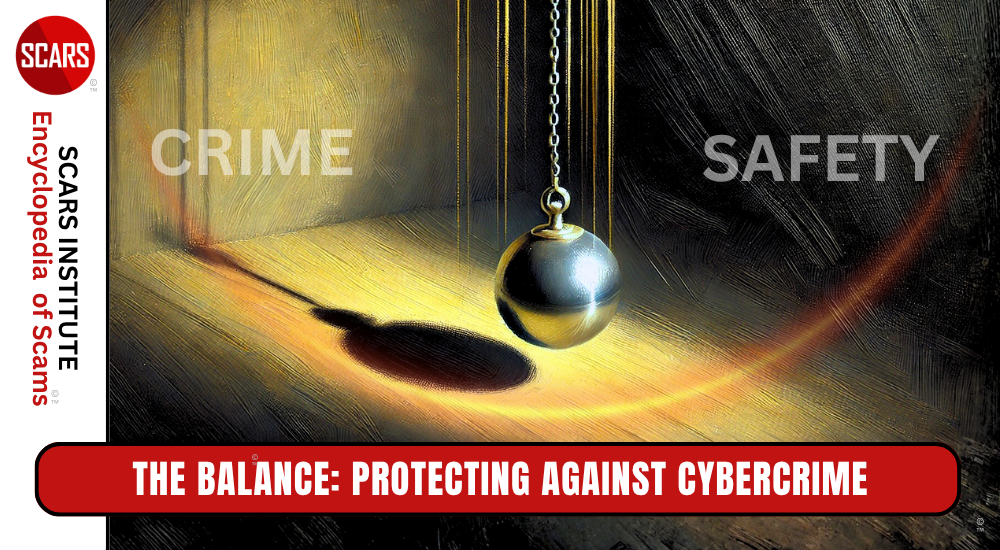
SCARS Institute’s Encyclopedia of Scams™ Published Continuously for 25 Years

Sextortion Is Exploding & Deep Fakes Are Making It Much Worse!
Malicious Actors Manipulating Photos and Videos to Create Explicit Content and Sextortion Schemes
The FBI is warning the public of criminals creating synthetic content (commonly referred to as “deepfakes”) by manipulating benign photographs or videos to target victims in Sextortion Scams.
Technology advancements are continuously improving the quality, customizability, and accessibility of artificial intelligence (AI)-enabled content creation. The FBI continues to receive reports from victims, including minor children and non-consenting adults, whose photos or videos were altered into explicit content. The photos or videos are then publicly circulated on social media or pornographic websites, for the purpose of harassing victims or sextortion schemes.
Introduction To Sextortion
Sextortion is a form of cybercrime in which the perpetrator threatens to release sexually explicit photos or videos of the victim, obtained through coercion or deception if the victim does not provide money, goods, or other favors. Sextortion can be devastating to victims, who may experience humiliation, anxiety, and depression. In some cases, victims have even committed suicide.
Sextortion can occur in a variety of ways. In one common scenario, the perpetrator will pose as someone else, such as a friend or romantic partner, and trick the victim into sending them explicit photos or videos. Once the perpetrator has the photos or videos, they will threaten to release them if the victim does not cooperate with their demands.
In other cases, the perpetrator will use malware or other hacking techniques to gain access to the victim’s computer or phone. Once they have access, they can steal the victim’s personal information, including their contact information, passwords, and credit card numbers. They can then use this information to blackmail the victim or to commit other crimes.
This is especially effective against teens and young adults!
Explicit Content Creation – How It Works
- Malicious actors use content manipulation technologies and services to exploit photos and videos for Sextortion Scams — typically captured from an individual’s social media account, open internet, or requested from the victim—into sexually-themed images that appear true-to-life in likeness to a victim, then circulate them on social media, public forums, or pornographic websites.
- Many victims, which have included minors, are unaware their images were copied, manipulated, and circulated until it was brought to their attention by someone else.
- The photos are then sent directly to the victims by criminals for sextortion or harassment, or until it was self-discovered on the internet.
- Once circulated, victims can face significant challenges in preventing the continual sharing of manipulated content or removal from the internet.
Sextortion and Harassment
Sextortion, which violates several federal & state criminal statutes in the United States (and in many other countries,) involves coercing victims into providing sexually explicit photos or videos of themselves, then threatening to share them publicly or with the victim’s family and friends. The key motivators for this are a desire for more illicit content, financial gain, or bullying and harassing others. Criminals have used manipulated photos or videos with the purpose of extorting victims for ransom or to gain compliance with other demands (e.g., sending nude photos).
As of April 2023, the FBI has observed an increase in sextortion victims reporting the use of fake images or videos created from content posted on their social media sites or web postings, provided to the malicious actor upon request, or captured during video chats.
Based on recent victim reporting, the criminals typically demanded:
- Payment (e.g., money, gift cards) with threats to share the images or videos with family members or social media friends if funds were not received; or
- The victim sends real sexually-themed images or videos.
FBI Sextortion Recommendations
The FBI urges the public to exercise caution when posting or direct messaging personal photos, videos, and identifying information on social media, dating apps, and other online sites. Although seemingly innocuous when posted or shared, the images and videos can provide criminals an abundant supply of content to exploit for criminal activity. Advancements in content creation technology and accessible personal images online present new opportunities for criminals to find and target victims. This leaves them vulnerable to embarrassment, harassment, sextortion/extortion, financial loss, or continued long-term re-victimization.
The FBI recommends the public consider the following when sharing content (e.g., photos and videos) or engaging with individuals online:
- Monitor children’s online activity and discuss risks associated with sharing personal content
-
Use discretion when posting images, videos, and personal content online, particularly those that include children or their information.
- Images, videos, or personal information posted online can be captured, manipulated, and distributed by criminals without your knowledge or consent.
- Once content is shared on the internet, it can be extremely difficult, if not impossible, to remove it once it is circulated or posted by other parties.
- Run frequent online searches of your and your children’s information (e.g., full name, address, phone number, etc.) to help identify the exposure and spread of personal information on the internet.
- Apply privacy settings on social media accounts—including setting profiles and your friends lists as private—to limit the public exposure of your photos, videos, and other personal information.
- Consider using reverse image search engines to locate any photos or videos that have circulated on the internet without your knowledge.
- Exercise caution when accepting friend requests, communicating, engaging in video conversations, or sending images to individuals you do not know personally. Be especially wary of individuals who immediately ask or pressure you to provide them. Those items could be screen-captured, recorded, manipulated, shared without your knowledge or consent, and used to exploit you or someone you know.
- Do not provide any unknown or unfamiliar individuals with money or other items of value. Complying with criminals does not guarantee your sensitive photos or content will not be shared.
- Use discretion when interacting with known individuals online who appear to be acting outside their normal pattern of behavior. Criminals take over social media accounts and can easily manipulate them to gain trust from friends or contacts to further criminal schemes or activity.
- Secure social media and other online accounts using complex passwords or passphrases and multi-factor authentication.
- Research the privacy, data sharing, and data retention policies of social media platforms, apps, and websites before uploading and sharing images, videos, or other personal content.
What To Do?
If you are a victim of sextortion, there are a few things you can do. First, do not give in to the perpetrator’s demands. This will only encourage them to continue their behavior. Second, report the crime to the police. The police may be able to track down the perpetrator and bring them to justice. Finally, seek help from a mental health professional. The emotional trauma of being a victim of sextortion can be significant, and it is important to get help if you are struggling.
Here are some tips to help protect yourself from sextortion:
- Be careful about what information you share online. Do not share your personal information, such as your address, phone number, or social security number, with people you do not know well.
- Be suspicious of emails or messages from people you do not know. If an email or message seems too good to be true, it probably is.
- Do not click on links in emails or messages from people you do not know. These links may lead to malicious websites that can infect your computer with malware.
- Keep your software up to date. Software updates often include security patches that can help protect your computer from malware.
- Use strong passwords and change them regularly. Do not use the same password for multiple accounts.
- Be aware of the risks of using public Wi-Fi networks. These networks are not secure and can be used by hackers to steal your personal information.
- If you think you may have been a victim of sextortion, report it to the police immediately.
Also, read the SCARS Guide to surviving sextortion: Surviving Sextortion / Sexual Photo Blackmail
More About Sextortion
- Surviving Sextortion / Sexual Photo Blackmail
- A Despicable New Sextortion Scam! Scamming The Parents Of Dead Children!
- When Sextortion Goes Wrong
- Sexting And Romance Scams ; A Path To Sextortion & Blackmail
- FBI Warns About Dangers of Sextortion [VIDEO]
- SCARS Insight: Avoid Teen Sextortion [VIDEO]
- Introduction To Sextortion Scams
- DeepFake Videos Are Now So Easy Any Scammer Can Do It!
Additional Resources
For more information on sextortion, see the 2 September 2021 PSA, “FBI Warns about an Increase in Sextortion Complaints,” at https://www.ic3.gov/media/Y2021/PSA210902.
Additionally, the below FBI press releases contain important information regarding this scheme:
- https://www.fbi.gov/news/press-releases/international-law-enforcement-agencies-issue-joint-warning-about-global-financial-sextortion-crisis
- https://www.fbi.gov/news/press-releases/fbi-and-partners-issue-national-public-safety-alert-on-financial-sextortion-schemes
The National Center for Missing and Exploited Children provides a free service known as Take It Down, which could help victims, who have possession of the image or video files, remove or stop the online sharing of nude, partially nude, or sexually explicit content that was taken while under 18 years old. For more information, visit https://takeitdown.ncmec.org.
If you believe you are the victim of a crime using these types of tactics, retain all information regarding the incident (e.g., usernames, email addresses, websites or names of platforms used for communication, photos, videos, etc.) and immediately report it to:
- FBI’s Internet Crime Complaint Center at www.ic3.gov
- FBI Field Office [www.fbi.gov/contact-us/field-offices or 1-800-CALL-FBI (225-5324)]
- National Center for Missing and Exploited Children [1-800-THE LOST or www.cybertipline.org]
Reporting these crimes can help law enforcement identify criminals and prevent further victimization.
-/ 30 /-
What do you think about this?
Please share your thoughts in a comment below!
Table of Contents
- An FBI Warning About Sextortion & Deepfakes
- Sextortion Is Exploding & Deep Fakes Are Making It Much Worse!
- Malicious Actors Manipulating Photos and Videos to Create Explicit Content and Sextortion Schemes
- Introduction To Sextortion
- Explicit Content Creation – How It Works
- Sextortion and Harassment
- FBI Sextortion Recommendations
- What To Do?
- More About Sextortion
- Additional Resources
LEAVE A COMMENT?
Recent Comments
On Other Articles
- SCARS Institute Editorial Team on Reporting Scams & Interacting With The Police – A Scam Victim’s Checklist [VIDEO]: “Yes, this is a scam. For your own sanity, just block them completely.” Feb 25, 15:37
- on Danielle Delaunay/Danielle Genevieve – Stolen Identity/Stolen Photos – Impersonation Victim UPDATED 2024: “She goes by the name of Sanrda John now” Feb 25, 10:26
- on Reporting Scams & Interacting With The Police – A Scam Victim’s Checklist [VIDEO]: “So far I have not been scam out of any money because I was aware not to give the money…” Feb 25, 07:46
- on Love Bombing And How Romance Scam Victims Are Forced To Feel: “I was love bombed to the point that I would do just about anything for the scammer(s). I was told…” Feb 11, 14:24
- on Dani Daniels (Kira Lee Orsag): Another Scammer’s Favorite: “You provide a valuable service! I wish more people knew about it!” Feb 10, 15:05
- on Danielle Delaunay/Danielle Genevieve – Stolen Identity/Stolen Photos – Impersonation Victim UPDATED 2024: “We highly recommend that you simply turn away form the scam and scammers, and focus on the development of a…” Feb 4, 19:47
- on The Art Of Deception: The Fundamental Principals Of Successful Deceptions – 2024: “I experienced many of the deceptive tactics that romance scammers use. I was told various stories of hardship and why…” Feb 4, 15:27
- on Danielle Delaunay/Danielle Genevieve – Stolen Identity/Stolen Photos – Impersonation Victim UPDATED 2024: “Yes, I’m in that exact situation also. “Danielle” has seriously scammed me for 3 years now. “She” (he) doesn’t know…” Feb 4, 14:58
- on An Essay on Justice and Money Recovery – 2026: “you are so right I accidentally clicked on online justice I signed an agreement for 12k upfront but cd only…” Feb 3, 08:16
- on The SCARS Institute Top 50 Celebrity Impersonation Scams – 2025: “Quora has had visits from scammers pretending to be Keanu Reeves and Paul McCartney in 2025 and 2026.” Jan 27, 17:45
ARTICLE META
Important Information for New Scam Victims
- Please visit www.ScamVictimsSupport.org – a SCARS Website for New Scam Victims & Sextortion Victims
- Enroll in FREE SCARS Scam Survivor’s School now at www.SCARSeducation.org
- Please visit www.ScamPsychology.org – to more fully understand the psychological concepts involved in scams and scam victim recovery
If you are looking for local trauma counselors please visit counseling.AgainstScams.org or join SCARS for our counseling/therapy benefit: membership.AgainstScams.org
If you need to speak with someone now, you can dial 988 or find phone numbers for crisis hotlines all around the world here: www.opencounseling.com/suicide-hotlines
A Note About Labeling!
We often use the term ‘scam victim’ in our articles, but this is a convenience to help those searching for information in search engines like Google. It is just a convenience and has no deeper meaning. If you have come through such an experience, YOU are a Survivor! It was not your fault. You are not alone! Axios!
A Question of Trust
At the SCARS Institute, we invite you to do your own research on the topics we speak about and publish, Our team investigates the subject being discussed, especially when it comes to understanding the scam victims-survivors experience. You can do Google searches but in many cases, you will have to wade through scientific papers and studies. However, remember that biases and perspectives matter and influence the outcome. Regardless, we encourage you to explore these topics as thoroughly as you can for your own awareness.
Statement About Victim Blaming
SCARS Institute articles examine different aspects of the scam victim experience, as well as those who may have been secondary victims. This work focuses on understanding victimization through the science of victimology, including common psychological and behavioral responses. The purpose is to help victims and survivors understand why these crimes occurred, reduce shame and self-blame, strengthen recovery programs and victim opportunities, and lower the risk of future victimization.
At times, these discussions may sound uncomfortable, overwhelming, or may be mistaken for blame. They are not. Scam victims are never blamed. Our goal is to explain the mechanisms of deception and the human responses that scammers exploit, and the processes that occur after the scam ends, so victims can better understand what happened to them and why it felt convincing at the time, and what the path looks like going forward.
Articles that address the psychology, neurology, physiology, and other characteristics of scams and the victim experience recognize that all people share cognitive and emotional traits that can be manipulated under the right conditions. These characteristics are not flaws. They are normal human functions that criminals deliberately exploit. Victims typically have little awareness of these mechanisms while a scam is unfolding and a very limited ability to control them. Awareness often comes only after the harm has occurred.
By explaining these processes, these articles help victims make sense of their experiences, understand common post-scam reactions, and identify ways to protect themselves moving forward. This knowledge supports recovery by replacing confusion and self-blame with clarity, context, and self-compassion.
Additional educational material on these topics is available at ScamPsychology.org – ScamsNOW.com and other SCARS Institute websites.
Psychology Disclaimer:
All articles about psychology and the human brain on this website are for information & education only
The information provided in this article is intended for educational and self-help purposes only and should not be construed as a substitute for professional therapy or counseling.
While any self-help techniques outlined herein may be beneficial for scam victims seeking to recover from their experience and move towards recovery, it is important to consult with a qualified mental health professional before initiating any course of action. Each individual’s experience and needs are unique, and what works for one person may not be suitable for another.
Additionally, any approach may not be appropriate for individuals with certain pre-existing mental health conditions or trauma histories. It is advisable to seek guidance from a licensed therapist or counselor who can provide personalized support, guidance, and treatment tailored to your specific needs.
If you are experiencing significant distress or emotional difficulties related to a scam or other traumatic event, please consult your doctor or mental health provider for appropriate care and support.
Also read our SCARS Institute Statement about Professional Care for Scam Victims – click here to go to our ScamsNOW.com website.


















Thank you for your comment. You may receive an email to follow up. We never share your data with marketers.